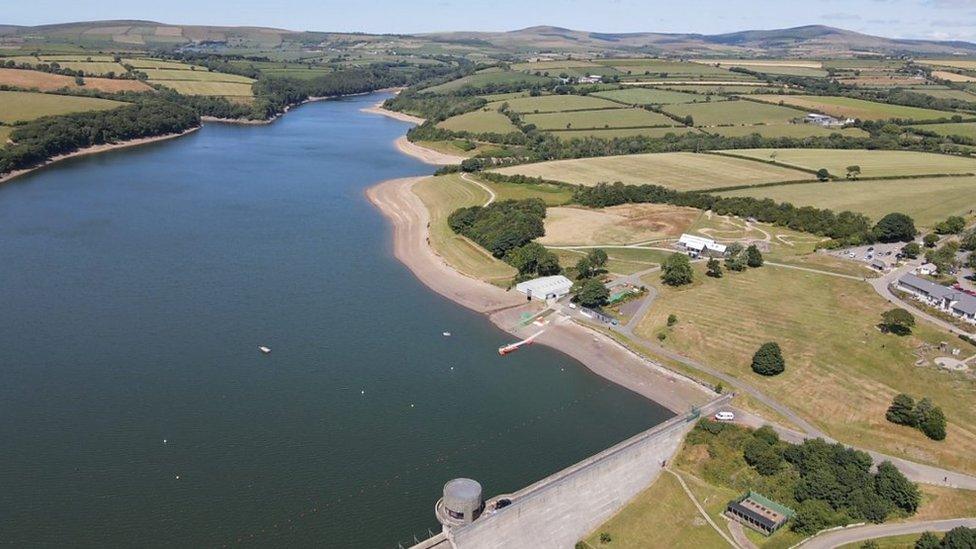Firefighters using treated sewage water after droughts
- Published
- comments
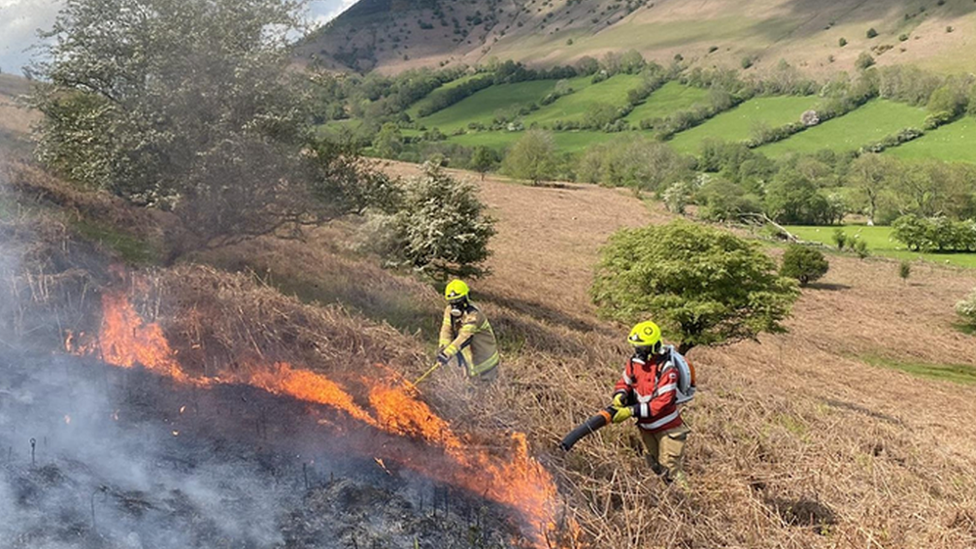
Fire crews in west and mid Wales are the first in the UK to trial using sewage water to fight flames
Treated sewage water will be used by firefighters to tackle blazes for the first time as droughts threaten their responses to emergencies.
The water, treated and cleaned with ultraviolet light, will be used as an alternative to drinking water and other sources by crews in mid and west Wales.
Current methods are said to put strain on local resources.
Welsh Water said the prospect of future water shortages meant services should be adapting.
Mid and West Wales Fire and Rescue Service is trialling the use of wastewater, after crews encountered "challenging" low water supplies in some areas due to droughts last year.
Natural Resources Wales had moved all parts of Wales to drought status by September 2022, during what was the country's driest spring and summer for more than 150 years.
A hosepipe ban was imposed in Pembrokeshire and parts of Carmarthenshire, but reservoir and river levels later recovered by the start of 2023.
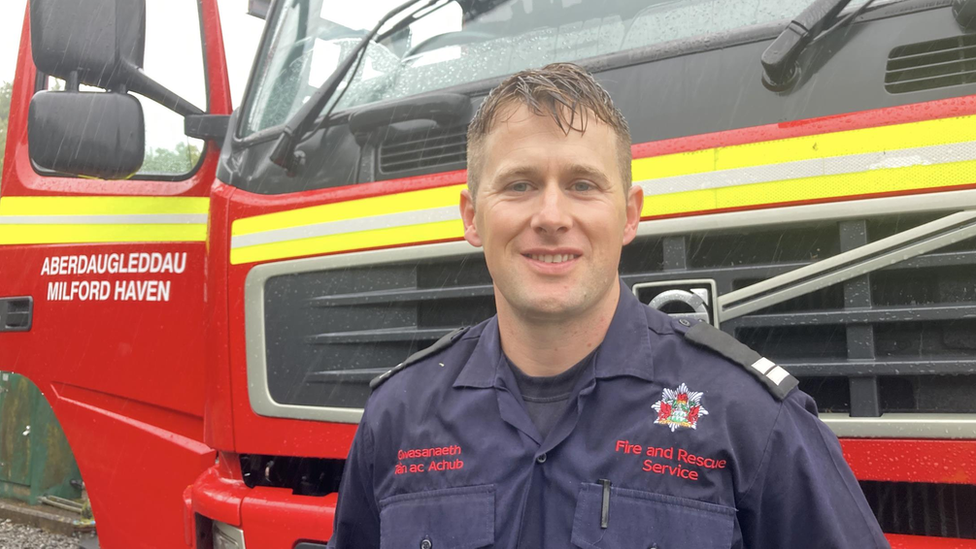
Crew member Luke Jenkins says water supplies are becoming less reliable
Luke Jenkins, a crew manager in Milford Haven, said: "I think what last year taught us is that water supplies are becoming less reliable. With the drought we had last year we found it difficult.
"You always have in the back of your mind that you have an established network of hydrants. But when that network becomes unreliable it just adds to everything."
The average modern fire engine has a 1,800-litre (395.9 gallons) water capacity, and using large amounts of water can occasionally cause issues like low water pressure for smaller communities.
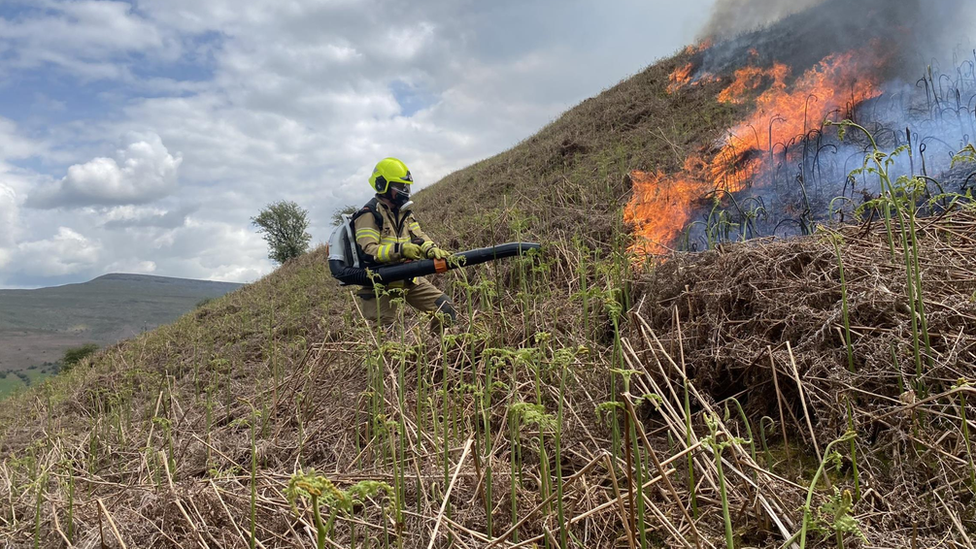
Fires crews found it "challenging" responding to blazes during last year's droughts
Mid and West Wales Fire's deputy chief fire officer, Iwan Cray, said there was interest to extend the initiative from other fire and rescue services across the UK.
"It is something innovative, to be honest, that we're moving in this direction," he said.
"A lot of interest has come from the southern parts of the UK where there's short supply of water, especially in the summer months."
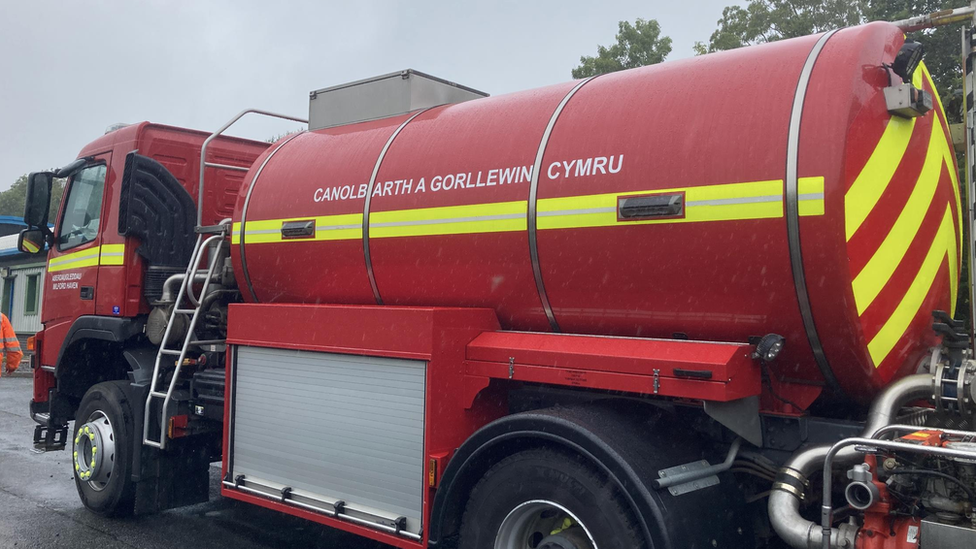
The water will be treated and disinfected with UV light before being used by the fire service
Mark Davies, head of wastewater treatment at Welsh Water, said more services and organisations should be looking at how they use water resources if droughts reoccur over the next few years.
"Wales is a country that gets plenty of rainwater. We need to make sure that we use that water as efficiently as we can," he said.
"We're looking ahead at the next 25 years to see how we can improve our water supplies."

ONE MAN AND HIS ISLAND: What's life like for Flat Holm Island’s newest warden?
YR WYDDFA: Life on Britain's busiest mountain

- Published16 March 2023
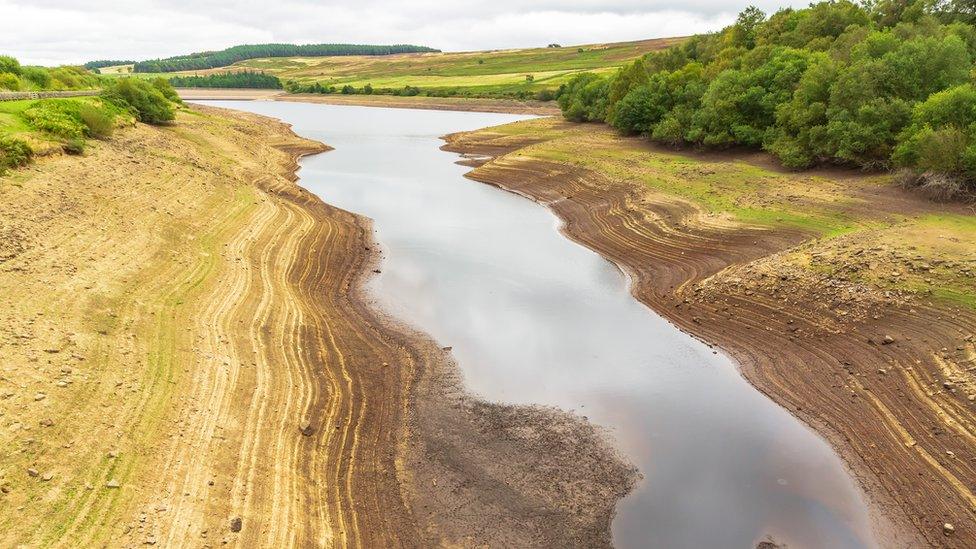
- Published25 August 2022
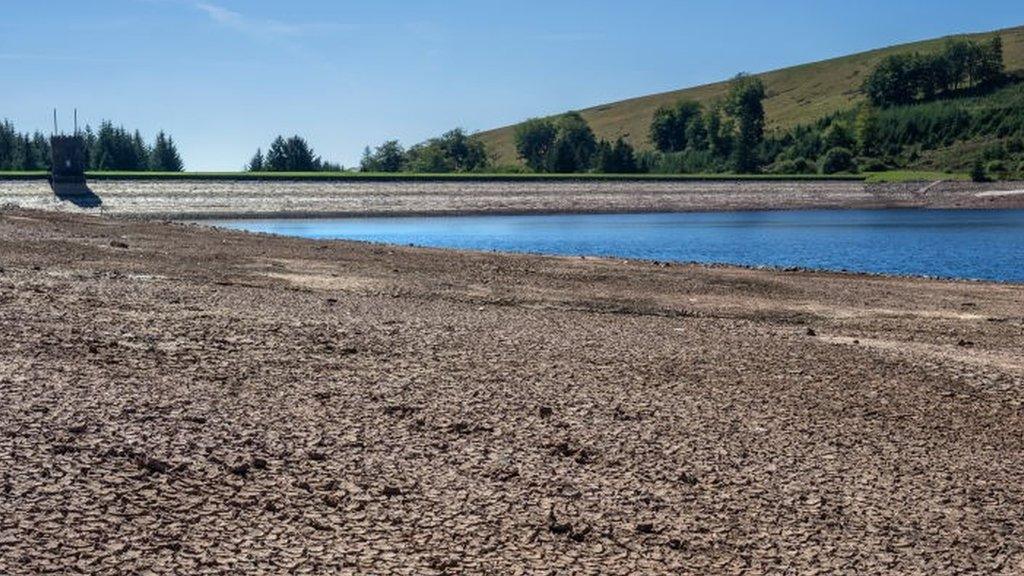
- Published22 May 2023
